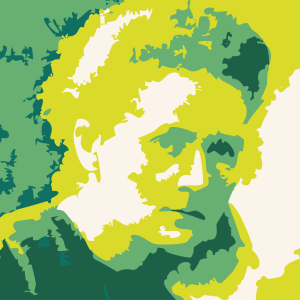
Marie Curie (1867–1934) was the ultimate trailblazer in science, smashing glass ceilings and redefining what’s possible. Born Maria Skłodowska in Warsaw, Poland, she was a brainy kid with big dreams. Despite being barred from formal education in her home country because she was a woman, she hit the books hard and eventually made her way to Paris. There, at the prestigious Sorbonne, she picked up degrees in physics and math like they were croissants.
Marie didn’t just stop at being brilliant—she made history. Teaming up with her husband, Pierre Curie (a love story for the ages, built on science and shared lab time), she discovered radioactivity, a term she coined. For this groundbreaking work, she snagged a Nobel Prize in Physics in 1903—becoming the first woman ever to win one.
Curie’s work wasn’t just about medals and accolades—it changed the world. She laid the groundwork for X-rays and advanced our understanding of atoms, though her research came at a cost. Constant exposure to radiation took a toll on her health, and she passed away in 1934 from aplastic anemia. Despite this, her legacy is untouchable. To this day, she’s celebrated not just as a scientific genius but as a fearless icon who proved that the sky’s the limit—especially for women in science.
Curious Minds Challenge
There are scientists among us! Do you like to wonder and investigate? Be sure to pick up your Read City gameboard—enter the lab to perform an "experiment" by completing reading and STEM activities. Earn a prize when you complete the experiment.